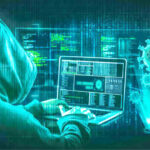Legal experts have explained the role electronic evidence will play in the 2023 election dispute litigations in Nigeria.
The Bimodal Voter Accreditation System (BVAS) and the INEC Result Viewing Portal (IREV) are two electronic devices which will play crucial roles in determining the winners in this year’s general elections, and disputes in courts and tribunals will rely heavily on the same devices.
The experts assembled at a lecture in honour of retired judge of the Kogi State High Court, Justice Alaba Omolaye-Ajileye, in Abuja last week with the theme: “A-Z of the Regime of Electronic Evidence in Nigeria: Issues and Challenges”.
At the lecture, organised by the Rule of Law Foundation, Justice Omolaye-Ajileye, in his paper, adopted Schafer and Mason’s definition of electronically-generated evidence as: “Data (comprising the output of analogue devices or data in digital format) that is created, manipulated, stored or communicated by any manufactured device, computer or computer system or transmitted over a communication system that has the potential to make the factual account of either party more probable or less probable that it would be without evidence.”
Bayelsa launches court with electronic filing facilities
Naira crisis: We’re not postponing elections – INEC
He said the Evidence Act of 2011 was “a statement contained in a document produced from a computer.”
Justice Ajileye explained that admissibility was a key part of the electronically-generated evidence as provided in Section 84(1) of the Evidence Act, 2011.
Besides certification of authentication of electronically-generated evidence, the four conditions for admissibility provided in Section 84(2) are: one, Section 84(2)(a) that the statement sought to be tendered was produced by the computer during a period when it was in regular use; two, Section 84(2)(b) that during the period of the regular use, information of the kind contained in the document or statement was supplied to the computer; three, Section 84(2)(c) that the computer was operating properly during the period of regular use or if not, the improper working of the computer at any time did not affect the production of the document or the accuracy of the contents; four, Section 84(2)(d) that the information contained in the statement was supplied to the computer in the ordinary course of its normal use.
The jurist added that, “A valid conclusion that can be established from the foregoing is that a certificate of authentication on its own is insufficient to render an electronically generated document admissible under section 84 of the Evidence Act, 2011.
“Oral evidence under subsection (2) is mandatorily required to back-up the certificate.”
Speaking on the use of the technological device for elections under Section 47 of the Electoral Act, Ajileye said it is important that the Independent National Electoral Commission (INEC) has approved the BVAS to authenticate the Permanent Voters Cards (PVCs) using the voters’ fingerprints.
He said this would prevent overvoting, which if it happened, the judges and lawyers could determine same under Section 60(4) and (5) of the Electoral Act, 2022 thus: “when the number of votes cast at an election in that polling unit exceeds the number of accredited voters in that polling unit.”
Apart from the contents of the BVAS, he said the law also required that the contents of a GSM phone, digital camera or other devices could be tendered in evidence alongside the device.
He noted that INEC needed to protect the server from hackers, saying, “Between the polling unit and the INEC server anything can happen because there are what I call ‘virtual bandits.’”
He described the BIVAS as the cornerstone of elections, having been accorded supremacy over the manual register, adding that it might fail during the elections, which the law had provided for a postponement.
He said, “If BVAS fails in any state of the nation, the law says wait, postpone. I am sure that at the time of postponement INEC will quickly go round to ensure they settle things.”
Ajileye posited that Section 84 had introduced a new genre of evidence into the Nigerian jurisprudence, that is, “statement contained in a document produced by a computer”.
“Principles of law emerging from their application and courts’ interpretation are still at developmental stage,” he said.
“Judges and legal practitioners now face new challenges. “Legal practitioners must now bear the burden of leading their witnesses to convince the court that the computerised documents they desire to tender are worthy of reception within the framework of section 84, in addition to complying with other existing rules of admissibility of documentary evidence.
“Courts also are now being challenged to be concerned with the question relating to whether or not the conditions stipulated under section 84 sub-sections (2) and (4) have been complied with.”
In his contribution, the coordinator of the Rule of Law Development Foundation, Joseph Daudu (SAN), said the importance of electronic evidence to the promotion of the resolution of commercial and electoral disputes in Nigeria could not be underestimated, adding that the Section 34(1)(b) of the Evidence Act 2011 had provided a guide on the procedure a court should follow when ascribing any weight to electronically-generated evidence.
He said, “I have deliberately raised these issues so as to highlight the next point, which is that we already have literature autochthonous to Nigeria and available to all those who adjudicate or are involved in the adjudication of disputes wherein the use or admissibility of electronic evidence is or will be the determining factor of the dispute.”




